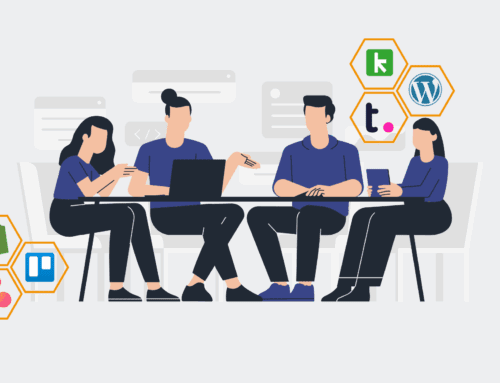AI for Proactive Employee Wellness: Building a Resilient Workforce for the Future
In today’s fast-paced business landscape, the well-being of your employees is no longer a peripheral concern; it’s a strategic imperative. Burnout, stress, and mental health challenges cost businesses billions annually in lost productivity, increased absenteeism, and high turnover. Traditional reactive wellness programs often fall short, addressing issues only after they’ve escalated. At 4Spot Consulting, we understand that true operational efficiency and scalability stem from a healthy, engaged workforce. This is where AI steps in, not as a replacement for human connection, but as a powerful, proactive ally in cultivating employee wellness and mental health support.
The Evolving Landscape of Employee Well-being
For decades, employee wellness initiatives have largely consisted of gym memberships, EAPs (Employee Assistance Programs), and stress management workshops. While valuable, these often represent a “spray and pray” approach, lacking the personalization and predictive power needed to make a significant impact. HR leaders and business owners are now grappling with a workforce that expects more – a workplace that genuinely cares and actively supports their mental and physical health. The challenge lies in identifying burgeoning issues before they manifest as crises, and in providing tailored support that resonates with individual needs, not just broad generalizations.
From Reactive Measures to Proactive Interventions with AI
Imagine a system that could subtly identify early indicators of stress or disengagement, allowing HR to intervene with targeted support before an employee reaches a breaking point. This isn’t science fiction; it’s the tangible promise of AI in employee wellness. AI-powered tools can analyze anonymized data patterns – from communication frequency and sentiment in internal platforms (with strict privacy protocols in place) to engagement with learning modules or even subtle shifts in work patterns – to detect potential risks.
For instance, predictive analytics can identify teams or individuals who might be at higher risk of burnout based on workload data, project deadlines, and historical trends. This isn’t about surveillance; it’s about spotting patterns that indicate a need for support, allowing HR to proactively offer resources like flexible work options, mental health breaks, or access to personalized coaching, rather than waiting for an employee to report feeling overwhelmed. It transforms HR from a reactive problem-solver into a proactive well-being architect.
Personalized Support at Scale: AI’s Unique Advantage
One of the most significant challenges in traditional wellness programs is the inability to offer truly personalized support at scale. Every employee is an individual with unique stressors, coping mechanisms, and preferences for support. AI, through machine learning, can bridge this gap. Chatbots, for example, can provide 24/7 confidential support, offering resources, mindfulness exercises, or connecting employees with human counselors based on their expressed needs. These aren’t generic responses; advanced AI can learn from interactions, making the support feel more relevant and empathetic over time.
Furthermore, AI can help tailor wellness content. Instead of a blanket email about general stress management, an AI system could recommend specific articles, webinars, or virtual coaching sessions based on an employee’s known preferences, past engagement, or even their role and responsibilities. This level of personalization increases engagement and makes employees feel truly seen and supported, fostering a stronger sense of belonging and loyalty.
Reducing HR Burden and Enhancing Strategic Focus
Implementing sophisticated wellness programs traditionally requires significant HR bandwidth. Collecting feedback, analyzing trends, and coordinating resources can consume valuable time that HR professionals could otherwise dedicate to strategic initiatives. AI can automate many of these administrative tasks. It can analyze survey data faster, identify recurring themes in employee feedback, and even help in the initial triage of mental health concerns, directing employees to the most appropriate resources more efficiently. This frees up HR teams to focus on the human element: providing empathy, building relationships, and crafting high-level strategies for organizational well-being.
At 4Spot Consulting, we’ve seen how integrating AI into HR operations, including wellness, can lead to substantial gains. It’s about eliminating manual bottlenecks and enabling your high-value employees – your HR leaders – to focus on what truly matters: people and strategy. By offloading the data crunching and preliminary support to AI, organizations can create a more robust, responsive, and ultimately more caring support system for their workforce.
Ethical Considerations and the Path Forward
Adopting AI for employee wellness isn’t without its ethical considerations. Privacy, data security, and transparency are paramount. Any AI implementation must be designed with strict safeguards to ensure anonymity and control over personal data. Employees must understand how data is being used and feel confident that their well-being is the sole purpose of these tools, not performance monitoring.
The future of employee wellness is proactive, personalized, and powered by intelligent automation. By strategically leveraging AI, businesses can move beyond reactive Band-Aid solutions to build genuinely resilient workforces. This doesn’t just benefit the employees; it creates a more productive, innovative, and sustainable organization, directly impacting your bottom line and enhancing your competitive edge. Embracing AI in this domain is not just about technology; it’s about a commitment to human potential, fostering an environment where every employee can thrive.
If you would like to read more, we recommend this article: Mastering AI in HR: Your 7-Step Guide to Strategic Transformation








